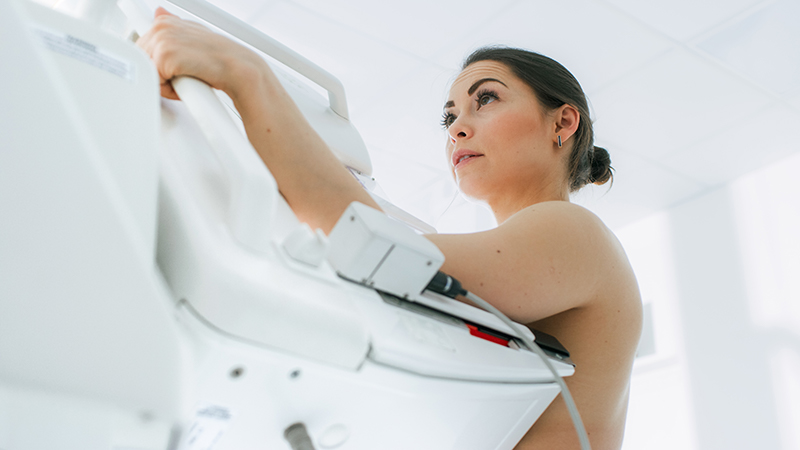Blog

The Long-Term Side Effects of Cancer Treatment
Cancer treatments such as chemotherapy and radiation are designed to kill fast-growing cancer cells. These powerful drugs travel throughout the body and may affect healthy, normal fast-growing cells as well. The type of long-term side effects cancer survivors face and the severity differs between individuals. Some may experience minimal long-term effects, while others may experience moderate to severe long-term effects. There are many different types of cancer and many different types of treatment. This combined with the fact that everyone's body responds...

What You Can Expect During Your First Mammogram
If you are preparing for or anticipating having to schedule your first mammogram, you may be wondering what to expect. A mammogram is a non-invasive diagnostic scan essential for early detection of breast cancer. It can be an inexpensive and highly effective method for reducing breast cancer risks. Having regular mammograms can be critical for those with a higher risk level or history of family breast cancer of any age. Today, we'll provide a guide to preparing for your first mammogram and outline what you can expect during your first screening. When Should You Have Your First...

9 Surprising Signs of Lung Cancer That Don’t Involve the Lungs
Most people assume that symptoms of lung cancer are related strictly to the lungs and complications related to breathing. Sometimes this is accurate. Lung cancer often has symptoms like coughing up blood and mucus, shortness of breath, persistent cough, and chest pain. However, some symptoms seem to have nothing to do with the lungs. While there are many breathing-related symptoms of lung cancer, other surprising symptoms exist. Here are 9 surprising symptoms of lung cancer that don't involve the lungs. 9 Symptoms That Could Mean Lung Cancer Clubbing of the nails Hoarse...

Skin Cancer Risks in Winter
Arizona means living with sunshine year round, even when it’s not super hot outside. That can be dangerous for your skin. Some people believe that the cooler weather in winter decreases their risk of developing skin cancer. The truth is, regardless of the temperature outside, the sun can still cause skin damage. All sun exposure can lead to a higher risk of skin cancer–even in those winter months that aren’t super hot. Skin Cancer Risks in Winter Protecting your skin from skin cancer is a year-round job. Why? Because harmful ultraviolet (UV) rays are always being...

Lung Cancer Risks, Signs, Symptoms & Screening
Lung cancer is the leading cause of cancer deaths in the United States amoung men and women. There are some lifestyle choices you can make to try and reduce your risk of getting lung cancer. Being aware of the symptoms to look for is helpful in catching the disease early and having a better treatment outcome. For people who have a family history of cancer, screening becomes even more important, since that population is at a higher risk of developing the disease. The information below is meant to be used as a guideline. Individuals experiencing any of these symptoms should...

7 Things You Didn’t Know About Prostate Cancer
Prostate cancer is the most common cancer among men, about 1 in 9 men will be diagnosed in their lifetime. Below are seven things that you may not know about prostate cancer that can help you detect it earlier and understand this type of cancer better if you have received a diagnosis. The majority of men survive a prostate cancer diagnosis. Prostate cancer can affect men of all ages. Symptoms may be difficult to recognize. It can be hereditary. Treatment isn’t always the first option. Prostate cancer is more common in some races. Lifestyle may affect your likelihood of getting prostate...

How to Read a Prostate Cancer Pathology Report
If you’re scheduled for a prostate biopsy, your doctor is likely testing a tumor for cancer. During this outpatient procedure, tissue will be removed from the tumor using a needle. It will then be analyzed by a pathologist, a doctor who reviews the results of the biopsy and provides information about the findings. The results of your biopsy are provided in a pathology report. Your oncologist or urologist will use the pathology report as a key piece of information in determining if cancer is present and the stage, based on the cell structure in the tumor. It will also play a key role in...

Reduce Lung Cancer Risk with the Great American Smokeout
What is the American Cancer Society's Great American Smokeout? It's an annual event, held the third Thursday of every November, a date on which smokers nationwide are asked to give up smoking. Quitting for just one day helps you take action toward a healthier life, and reduce your lung cancer risk. Each year, the Great American Smokeout calls attention to the deaths, lung cancer diagnoses and other chronic diseases that smoking causes, and how to prevent them. As a result of this event, there have been actions taken towards reducing the health impacts that smoking can...

What is a Gleason Score for Prostate Cancer and What Does It Mean?
The Gleason Score is more than likely one of the first things your doctor will discuss if you have received a prostate cancer diagnosis. That’s because it’s used to explain the stage of prostate cancer you have. Let’s discuss prostate cancer, the purpose of the Gleason Score, how it is calculated, and why it is so important. What is Prostate Cancer? The prostate is a gland found only in males that lies just below the bladder and in front of the rectum. Prostates in younger men are about the size of walnuts but tend to become larger as they age. It serves two main...

Fertility for Cancer Survivors
For a man or woman in their childbearing years, a cancer diagnosis can come with a scary thought: will having children be possible? Fortunately, with improvements in treatment and fertility preservation options, having a baby after remission can become a reality for many cancer survivors. The Risks of Infertility After Cancer When it comes to whether or not you’re at risk for infertility after cancer, there really is no one-size-fits-all answer. Overall, the chances of remaining fertile depend on a variety of factors including the cancer type, the treatments you received, how your body...


